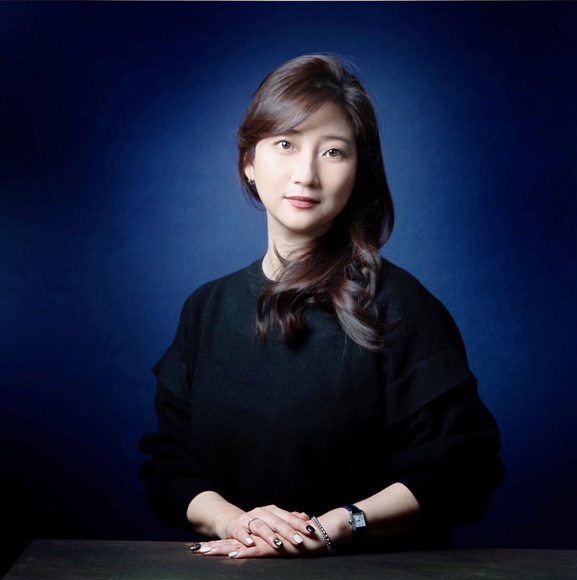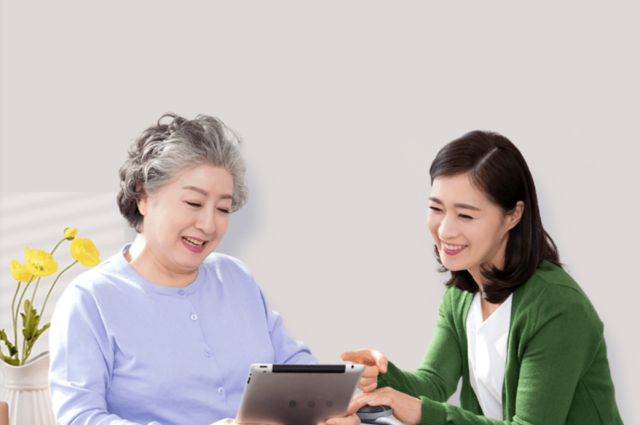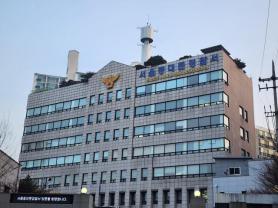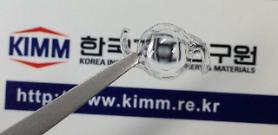
Kang Hyun-joo, CEO of the Busan-based social enterprise, said the new program will demonstrate AI's expanding role in addressing the challenges faced by aging societies worldwide.
The program, Brain Up, analyzes speech patterns and linguistic behaviors to detect signs of cognitive impairment, including dementia. The company unveiled the app in January after a joint development with a research team at Tongmyong University in the southern port city.
"As the elderly population increases, so does the number of dementia patients and those with declining cognitive functions, which places additional strain on families responsible for their care," Kang said in an interview with AJP.
"We hope that our company can address this issue by providing support for both the patients and their families," she added.
The app engages elderly people in verbal conversations and monitors their cognitive functions through speech analysis. For example, it might start a discussion about the 1950-53 Korean War and ask users to recount their experiences from that period.
Brain Up also collects extensive data from user interactions to create storytelling content. These reminiscence stories, using photos, video, and audio from the past, are designed to stimulate personal memories, enhance cognitive abilities and prevent dementia.
"Even though the elderly often feel uncomfortable and reluctant to talk, storytelling helps them connect and makes conversation easier," Kang noted.
Korea is one of the world's fastest-aging countries. As of July, seniors aged 60 years and older accounted for 27.8 percent of the total registered population of about 51.2 million, according to government data.
The number of people aged 60 and older with dementia exceeded 1 million in 2023, representing more than 10 percent of the elderly population, according to the National Institute of Dementia. By 2030, the institute projects that the number of dementia patients will surpass 1.35 million.

Leben Grida, founded in 2018, has organized counseling programs for seniors in Busan, where those aged 65 and older exceed 20 percent of the total population.
"Our counseling content attracts thousands of participants each month," she said.
The company also supports elderly individuals who wish to remain socially active by offering them opportunities to counsel children from immigrant families who are not familiar with Korean culture and language.
By engaging these seniors in creating storytelling content, children learn about Korean culture through interactive and meaningful experiences.
"This approach not only allows the elderly to stay productive but also provides them with a sense of fulfillment," Kang said.
In addition, the company organizes theater performances for elderly individuals, providing them with opportunities to keep their minds more active.
Kang is seeking to expand its gerontechnology solutions overseas. The company has discussed potential cooperation with Japan's Small and Medium Enterprise Agency to introduce Brain Up and educational programs to seniors in Japan.
"Japanese officials were very positive when I proposed my business, saying that there aren't many private businesses offering such services. Just like Korea, Japan is experiencing a significant aging phenomenon," she said.
The Japanese organization was particularly positive about various services aimed at helping elderly individuals engage in productive activities and initiatives like Brain Up to keep their minds active.
"After expanding into Japan, I'm also considering Germany where reminiscence therapy is widely used in psychiatric care," she added.
Copyright ⓒ Aju Press All rights reserved.




